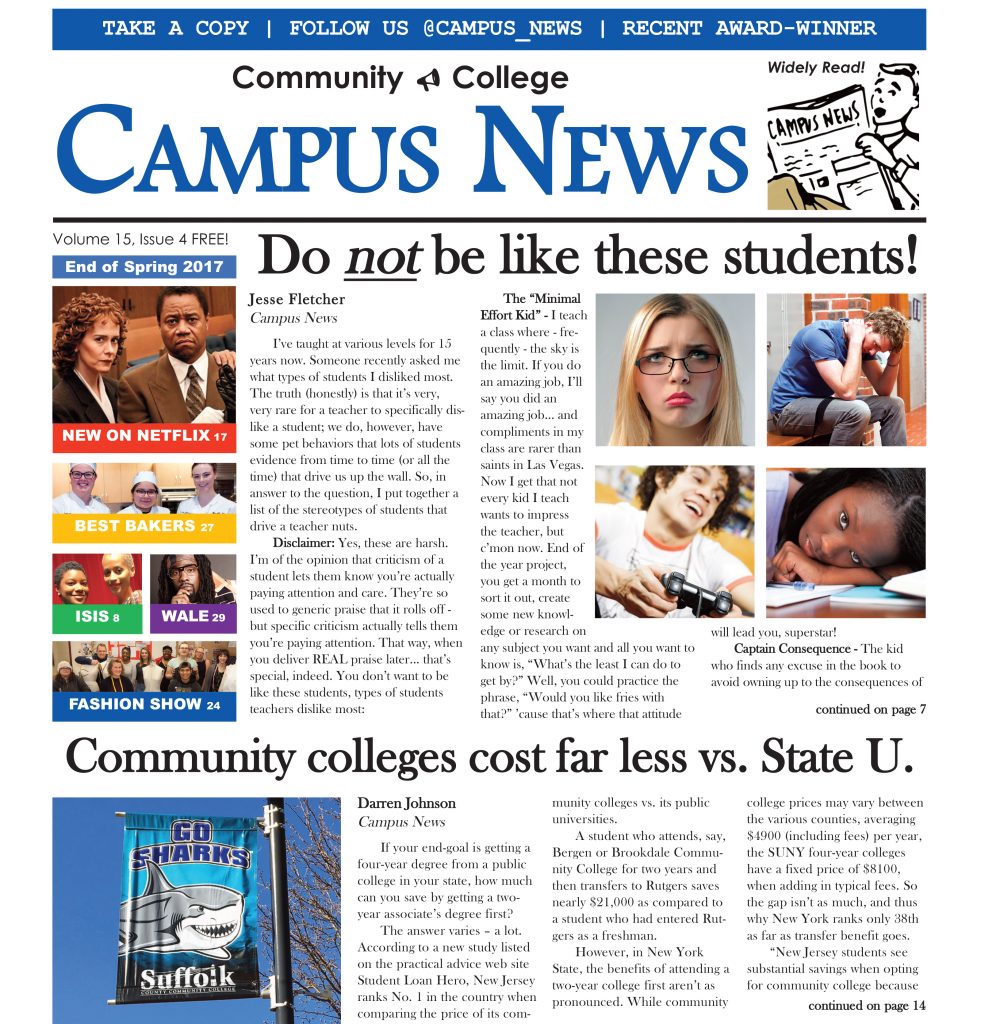By Jose Marquez-Leon
Special to Campus News
Payday loans are illegal in the State of New York, and with good reason. These lenders used to take advantage of the people who could least afford it, offering astronomical interest rates to desperate New Yorkers and relying on confusion to target immigrant communities. Every year, consumers in our state save $790 million that would otherwise be paid in costly fees to payday lenders.
But the ban hasn't stopped cash-strapped New Yorkers from turning to usurious lenders. People with no or bad credit still need loans, and many are finding their way to loan sharks, who charge even higher interest rates to people who can't obtain traditional bank loans.
There's demand for risky loans because many Americans have little to no savings. About 40 percent have less than $400 stocked away. When disaster strikes -- a car accident, a sudden sickness, and so on -- this population typically has to resort to taking out a personal loan to stay afloat.
These folks often can't obtain these loans from banks. The vast majority of Americans have "subprime" credit, meaning their credit scores are below 700. Nationally, roughly 160 million people are subprime.
Subprime doesn't mean someone is stuck on the fringes of the economy. These are mostly hard-working people who act responsibly. But, when that cash crunch comes, they'll still have a tough time finding an affordable loan. Traditional banks generally won't lend to subprime borrowers.
As a result, New Yorkers are often forced to rely on loan sharks, who set interest rates at 400 percent or higher. Consider Maria Ramos, the owner of a beauty salon in Washington Heights. When traditional banks turned down her request for a business loan, Maria Ramos borrowed $14,000 from a loan shark. As of last October, she still owed over $10,000 on that loan, despite making monthly payments of $2,600 for two years straight.
Her monthly payment is over seven times what she'd owe on a conventional bank loan, according to a New York Post expose on loan sharking. Such loans often amount to a debt trap: most borrowers don't have the money to pay them off. So they have to take out new loans to cover the original ones.
Financial technology firms are taking loan sharks head-on. These so-called fintech companies are using innovation to address this challenge, employing a wide variety of data, including personal recommendations, to create a holistic picture of a potential borrower's financial profile. Community banks can then use those profiles to provide affordable loans to borrowers they would have rejected based on credit scores alone.
Such cooperation between financial technology firms and community banks could make loan sharks obsolete -- as long as courts don't get in the way. Some courts have ruled that the fintech firms, which are simply acting as middlemen connecting borrowers and banks, are actually the "true lenders" originating the loans.
This misclassification subjects fintech firms to a bevy of regulations that make it nearly impossible for them to continue partnering with banks.
The Protecting Consumers' Access to Credit Act -- which would streamline and clarify the rules governing financial technology firms so they can keep innovating -- just passed the House, with Congressman Meeks from Queens as a lead co-sponsor. The Senate should follow suit.
New York’s large minority and immigrant populations have suffered immensely due to loan sharks. Our leaders have seen firsthand the damage usurious lenders can inflict -- and how safe, low-cost credit can improve people's lives. By supporting community-level innovation, our congressional leaders can build on the progress of the payday lending ban and expand options that support neighborhood development.
Jose Marquez-Leon is CEO and President of TechLatino, the Latinos in Information Sciences and Technology Association. He lives in New York, NY.








Hi guys, I’m Churchill from Edison NJ, I just got a 50k loan from a private lender, the loan process was very fast and the loan has a very low interest rate, I’m very happy and I recommend Mrs. Filomena Bredice to all loan seekers. you can contact her via email: bredicefilomena147@gmail.com
I wish you good luck.